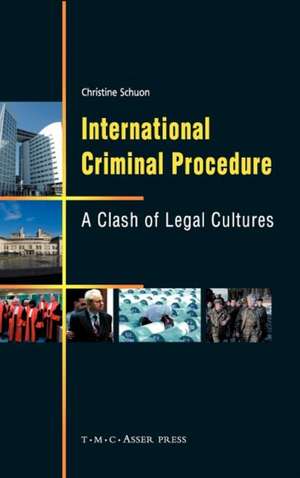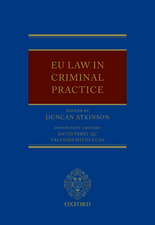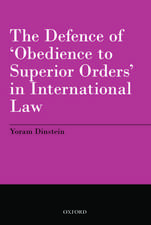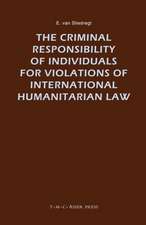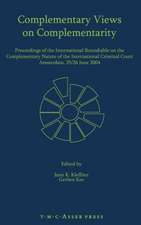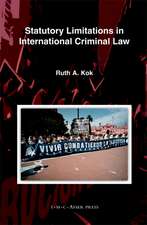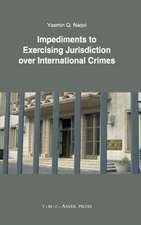International Criminal Procedure: A Clash of Legal Cultures
Autor Christine Schuonen Limba Engleză Hardback – 31 aug 2010
Preț: 652.31 lei
Preț vechi: 767.42 lei
-15% Nou
Puncte Express: 978
Preț estimativ în valută:
124.82€ • 130.67$ • 103.28£
124.82€ • 130.67$ • 103.28£
Carte tipărită la comandă
Livrare economică 05-19 aprilie
Preluare comenzi: 021 569.72.76
Specificații
ISBN-13: 9789067043007
ISBN-10: 9067043001
Pagini: 384
Ilustrații: 450 p.
Greutate: 0.75 kg
Ediția:1st Edition.
Editura: T.M.C. Asser Press
Colecția T.M.C. Asser Press
Locul publicării:The Hague, Germany
ISBN-10: 9067043001
Pagini: 384
Ilustrații: 450 p.
Greutate: 0.75 kg
Ediția:1st Edition.
Editura: T.M.C. Asser Press
Colecția T.M.C. Asser Press
Locul publicării:The Hague, Germany
Public țintă
ResearchDescriere
4 an incorrect verdict. The basic concept of a criminal trial in common law s- tems is that of a competition between the parties, in which the stronger – and therefore true – version of the case will prevail. Civil law-style criminal proceedings, in contrast, are characterised by a “one case approach”. Beginning at the pre-trial stage, only one case is prepared by a state official who carries out by far the major part of the investigations. This state official is either an investigating judge or (as for example in Germany) the prosecutor who, in contrast to a common law prosecutor, is also obliged to investigate exonerating evidence. The defence is granted a right to inspect the case files produced by this investigating authority. If the case proceeds to trial, these case files are transmitted to the trial court. At trial, the central figure is the judge who largely decides on the submission of evidence and questions the witnesses, and who decides over the defendant’s guilt or innocence. Thus, only one case is presented at trial. In civil law systems, the judge is under a legal duty to establish the true facts of a case and to submit the appropriate evidence - cordingly. The central concept of a civil law-style criminal trial is that the true facts of a case are established by an official authority.
Cuprins
The Debate between Civil Law and Common Law Lawyers in International Criminal Procedure.- About this Study.- National Procedural Law.- Disclosure Rules.- Evidence Rules.- The Role of a Judge and the Question of a Dossier.- Guilty Pleas and Plea-Bargaining.- Procedural Law of the ICTY.- Disclosure Rules.- Evidence Rules.- The Role of a Judge and the Question of a Dossier.- Guilty Pleas and Plea-Bargaining.- Evaluation of the Rules of the ICTY — The Results of the Comparative Study of Domestic and ICTY Procedure in a Nutshell.- Procedural Law of the ICC.- Disclosure Rules.- Evidence Rules.- The Role of a Judge and the Question of a Dossier.- Admission of Guilt and Bargaining.- Concluding Remarks.- Concluding Remarks.
Notă biografică
Christine Schuon is an Associate Legal Officer in the Trial Chambers of the International Criminal Tribunal for the Former Yugoslavia in The Hague, The Netherlands.
